Roads and civil engineering
Roads and civil engineering applications
Lime improves the workability and the mechanical performance of soils used for railways, roads, highways, hydraulic works, airports, and industrial platforms. Hydrated lime contributes to the durability of asphalt structures, such as roads, highways, and walkways.
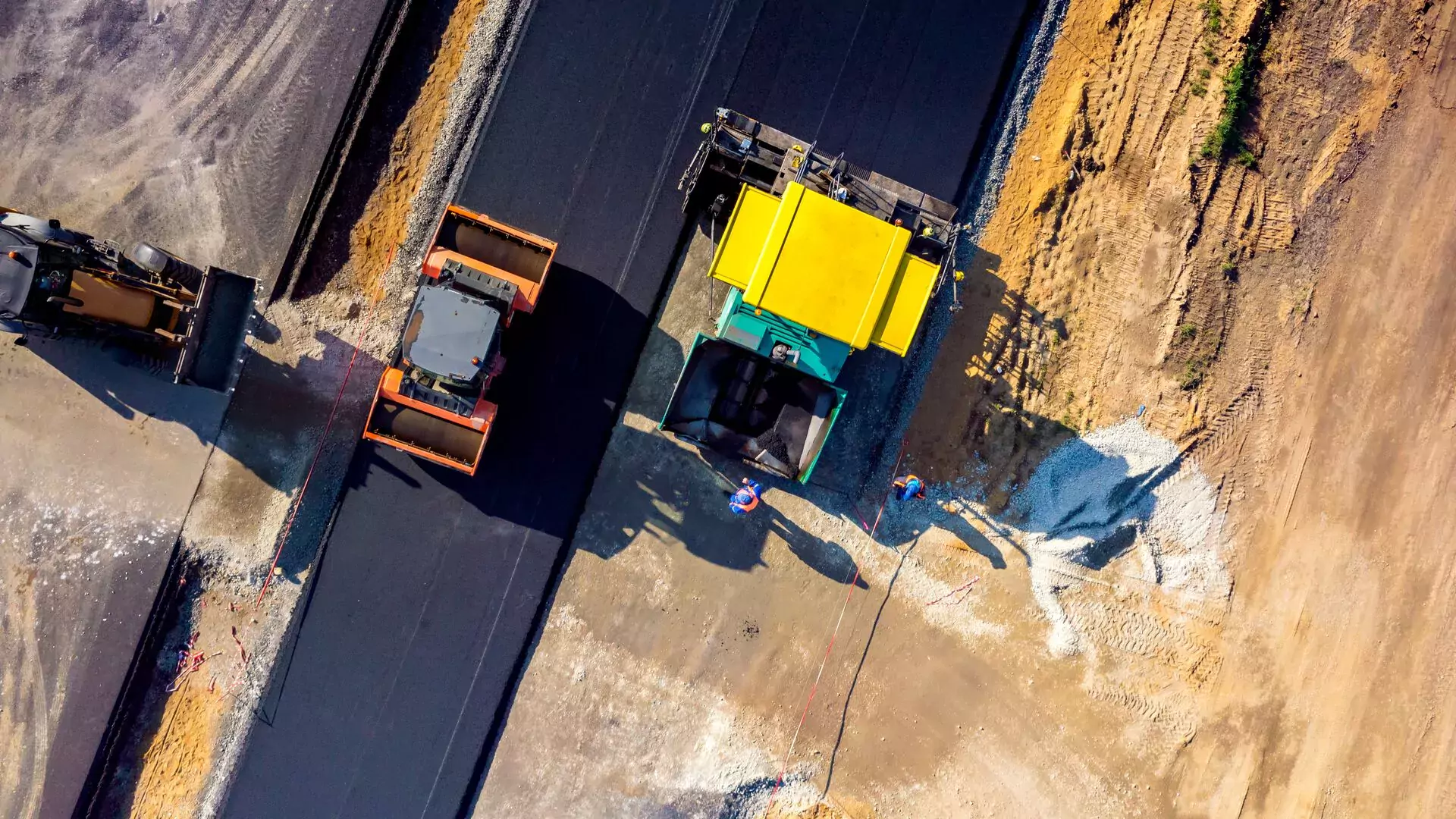
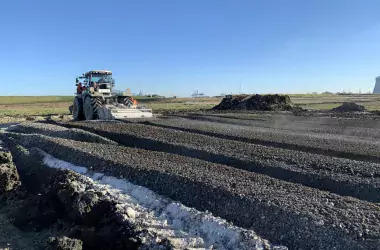
Lime for soil treatment in earthworks
In the presence of water, quicklime spontaneously hydrates to form calcium hydroxide. The heat released during this reaction rapidly dries out damp soil. Lime also dissolves the clayey particles in the soil into their component parts, silica and alumina that, through a pozzolanic reaction with the calcium provided by the lime, form cementitious compounds.
Hydraulic road binders
Lime valorizes and speeds up the reaction of pozzolanic materials such as fly ash, cement, and slag. Hydraulic road binders composed of a significant amount of lime are used for a wide range of soils as they offer greater flexibility in terms of soil quality. They combine the drying effect of lime on natural soil with the hydraulic reaction of the pozzolanic materials.
Hydraulic binders in which lime is incorporated are used to improve the performance of soils for bases, sub-bases and capping layers, as well as earthworks, in road, railway, airport and other types of infrastructure.
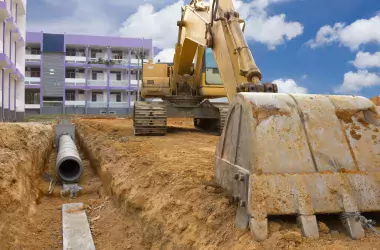
Trenches
Earthwork activities, trench cutting, and roadwork excavations produce spoil or aggregates that are often dumped. Environmental regulations and cost pressures seek to limit this landfill disposal and the associated heavy truck traffic.
Lhoist has developed solutions to enable the reuse of excavated soil on site by making it suitable for backfilling or road construction.
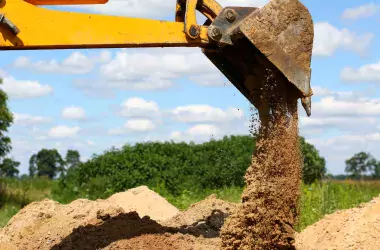
Recycling
Lime improves unsuitable and heterogeneous by-products from excavation, allowing their reuse in backfill trenches or in other urban excavations. This process can be implemented in situ, close to the site, or in a central plant thereby increasing resource efficiency.
To optimize the use of lime and facilitate recycling, a proprietary on-site system developed by Lhoist allows lime to be dosed directly from big bags/super sacks into a screening bucket.
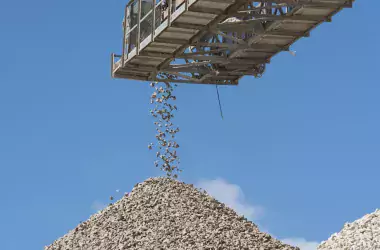
Aggregate improvements
Our products improve the quality of aggregates, through a dry technique rather than a washing operation.
Some aggregates from quarries and/or recycling are difficult to process in the crusher/screener due to their extremely sticky clay content. As a result, they are removed at the primary crushing stage. Such clay-clogged materials are even more difficult to process in wet conditions.

Tunnels
In tunnel construction, hydrated lime improves the rheology of mortars, reducing the amount of expensive organic additives required and lowering the cost of grout formulations. Hydrated lime can also be used in the production of binders for injection.
Dredging sludges
Quicklime dries out the drilling muds that are used during the excavation process, making handling easier. It improves soft soils, reduces settling, and increases stability.
Synergies between clay and lime provide many opportunities for recycling.

Hydraulic works
Our lime-based products for hydraulic works, such as dikes and dams, are very effective in improving the erosion resistance of soils without affecting their permeability. The enhanced workability and mechanical stability of wet and clayey treated soils help to reduce financial and environmental costs.
Landscaping (hydraulic engineering)
In many of our quarries, large stone sizes are produced for decoration purpose. In hydraulic engineering, this type of stone is used to control riverbank erosion and reduce drainage from lakes.
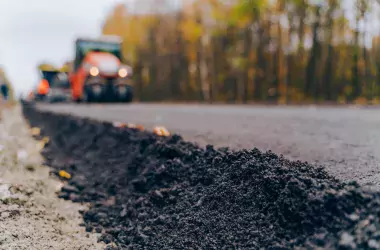
Asphalt
Lhoist is always looking for new long-lasting and economical techniques to build roads and walkways. We have a range of products for hot and cold mixed asphalts, that can be used for road construction and maintenance.
Tailor-made mixtures with fillers are also available. They require no modification of the dosing installation at the customer site. These mictures improve asphalt quality in terms of resistance to water stripping, frost-thaw cycles, de-icing salts, age-hardening, and rutting.
According to feedbacks from infrastructure owners, hydrated lime added to asphalt mixtures has been proven to increase pavement durability by 25% or more.